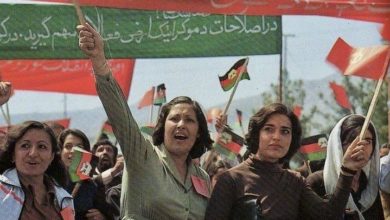Afghan translator and reporter Sultan Munadi was shot dead in a burst of gunfire on Wed., Sept. 9, as British commandos launched a raid to rescue Stephen Farrell, a British-Irish New York Times journalist being held hostage by Taliban fighters.
Munadi and Farrell were captured by the Taliban on Sat., Sept. 5, when they were in Kunduz province reporting on the NATO bombing of two fuel tankers that killed approximately 125 people.

Mourners held pictures of Afghan translator,
Sultan Munadi, who was killed during a
British rescue mission.
It is unclear whether British commandos or Taliban fighters killed Munadi. Farrell, in an account of the fighting, said Munadi was the first to leave the building, where he frantically shouted “journalist!” but was immediately killed in a hail of bullets.
The recently formed Media Club of Afghanistan, which is comprised of Afghan journalists who work with international news media in the country, condemned the Taliban for the kidnapping, but also held NATO forces responsible for their colleague’s death, charging that nonviolent means of negotiation had not been exhausted. They also condemned NATO forces for holding a double standard for Western and Afghan lives.
John Harrison, a 29-year-old British paratrooper, was also killed in the raid. British troops recovered
In a statement made after the killing, members of the Media Club said the organization “holds the international forces responsible for the death of Mr. Munadi because they resorted [to] military action before exhausting other non-violent means.” The statement also charged: “There is no justification for the international forces to rescue their own national, and retrieve the dead body of their own soldier killed in action, but leave behind the dead body of Sultan Munadi in the area. The Media Club of Afghanistan deems this action as inhumane.”
Anger against the occupation continues to grow in spite of NATO claims that policy guidelines are meant to minimize civilian casualties. Munadi, 34, had two young sons, and was studying in
Even President Hamid Karzai and former Foreign Minister Abdullah Abdullah, his main opponent in the recent, disputed national elections, felt the need to condemn the British raid. More than 50 Afghan journalists placed flowers at Munadi’s grave after the shooting.
The killing of Munadi further damages NATO goals for continuing the occupation of
In fact the U.S.-led NATO occupation of





